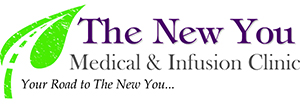Healthy Pregnancy Diet & Lifestyle Program in Euless, TX

If you have a baby on the way—or are planning on getting pregnant soon—it is important to consider your daily habits for the health and wellbeing of your growing fetus. In fact, healthy habits are critical for proper fetal development, and these habits can go into effect preconception and be carried through postpartum. From beneficial nutrients and healthy dietary habits to harmful chemicals and substances like alcohol, everything you expose your body to can affect the baby developing inside your womb.
With motherhood in the horizon, preconception, prenatal and postpartum health can become overwhelming. And while you have likely heard the phrase "babies should come with an instruction manual," we firmly believe pregnancy should too! From eating the right foods to learning how to position your sleeping body in the third trimester, your pregnancy can empower you to make healthy choices that stay with you long after the baby is born.
To schedule a consultation with a qualified healthcare provider in Euless who can discuss a healthy pregnancy diet and lifestyle program with you, call (817) 203-2760 or contact Ms. Jessica Stangenwald online.
Prenatal Nutrition: How to Really Eat for Two
While your goal during pregnancy should be to nourish you and your growing baby with beneficial nutrients, it does not require an excessive increase in calories consumed daily. In fact, you only need to increase your caloric intake by 300-500 calories daily; this increase should be completed gradually beginning in your second trimester.
The basic principles of healthy eating remain the same even during pregnancy, and a balanced prenatal diet full of organic, fresh fruits and vegetables, whole grains, healthy fats and lean proteins should actually begin preconception and continue through postpartum while you are nursing. Equally important, you should avoid highly processed and refined foods which contain additives, preservatives, dyes and toxins that your baby does not need unnecessary exposure to while in the womb.
In addition, there are key nutrients you should seek to increase in your diet which are particularly important to fetal development and overall prenatal nutrition. These include:
- Folate: Also referred to as folic acid, folate is one of the most important nutrients to consume during your pregnancy. Folate can help prevent birth defects in your baby’s brain and spinal cord. A minimum of 400 mcg are recommended daily before and during pregnancy; however, your healthcare provider may recommend a higher dosing based on your unique health needs. Folate is found naturally in dark leafy green vegetables and citrus fruits.
- Calcium: To help develop strong bones and teeth, your baby requires regular calcium during fetal development. Calcium is also critical in the growth of heart valves, nerves and muscles. Pregnant women under the age of 18 require 1,300 mg of calcium daily, while pregnant woman over 18 require 1,000 mg daily. Calcium is found naturally in kale, Bok choy, broccoli, almonds, raw milk and kefir.
- Iron: Your body demands more iron than before you were pregnant (almost twice the amount) in order to produce extra blood and oxygen for your baby. Iron deficiency in pregnant woman can lead to anemia during pregnancy which can result in premature birth or low-birth weight. Pregnant women should consume 27 mg of iron daily; you can accomplish this through natural sources like spinach, lentils, black beans and pistachios. Iron-rich foods should be consumed with vitamin C-rich foods to help your body best absorb the iron.
- Omega-3 fatty acids: Essential for both the expectant mother and baby, omega-3 fatty acids, particularly docosahexaenoic acid (DHA), are important for fetal neurodevelopment. Since omega-3s are not synthesized by the body, they must be obtained through diet and supplementation. Natural omega-3 food sources include wild-caught fatty fish like salmon, which should be consumed at least twice per week.
Prenatal Vitamins: Supplementing a Healthy Pregnancy Diet
No matter how well you are eating, chances are, you'll need nutritional support through dietary supplementation. The nutritional quality of our modern-day food supply tends to lack the adequate nutrients pregnancy demands.
If there was ever a time to take your vitamins, this is it—but no, they're not all the same. Some companies manufacture them cheaply, using fillers and poor quality sources. Vitamins are one product where quality matters.
It is also important to remember that vitamins are not one-size-fits-all or a one-a-day issue. There may be some vitamins that you don't want to take in excess because of a health condition, and there may be vitamins you need to take a little more often. Your healthcare provider might even want to test your blood levels to see what vitamin deficiencies you may have. You should only take prenatal vitamins which your healthcare provider recommends to ensure you are receiving adequate levels of the nutrients you need most.
Prenatal Exercise: Stay in Shape to Bounce Back Faster
Regular movement during your pregnancy—30 minutes a day, several days a week—can reduce your discomfort, help you control your stress levels and actually help you bounce back faster after delivery. However you choose to engage in prenatal movement, just be sure you move. There are several prenatal exercise options which cater to pregnant women, including:
- Prenatal Pilates
- Prenatal water aerobics
- Prenatal Zumba
- Prenatal yoga
These programs were built with expectant mothers in mind, taking into account a growing belly and the aches and pains most pregnant women are desperate to alleviate.
In addition, swimming—particularly during your third trimester—is a prenatal workout that can help relieve aches and pains, while the water supports your extra weight. Kegel exercises and squats are a way to strengthen the muscles that will not only help you through delivering the baby but will help to restore your body back to its normal pre-pregnancy condition after the vaginal birth of your child. Fortunately, most forms of exercise are safe to continue during your pregnancy. While we do not condone downhill skiing or other extreme sports, walking, running, indoor cycling and even weight lifting (with modifications to reduce your chance of suffering an injury) are all still options you can consider.
It's important also to consult your healthcare provider when choosing an exercise program during your pregnancy who can help to guide you in choosing the proper types and amount of exercise that is right for you.
Healthy Pregnancy Tips: Moving Beyond Diet & Exercise
In addition to healthy nutritional habits and physical activity, there are other aspects of your lifestyle to consider when you are expecting, including:
- Quit damaging behavior like alcohol consumption, smoking, caffeine and recreational drug use. All of these habits can harm your unborn child.
- Review prescription and over-the-counter medication usage with your healthcare provider to make adjustments to protect your baby while still managing preexisting conditions.
- Reduce the use of plastics and limit exposure to other toxins.
- Get adequate sleep (8 hours minimum) and avoid sleeping or lying on your back for extended periods. Try sleeping on your left side to allow for the best blood flow to the fetus
- Buy new shoes (you have our permission)! Your feet will likely change during your pregnancy, retaining fluid which can make your feet and ankles swell and causing you much discomfort. You should invest in comfortable shoes with adequate support to alleviate some of this discomfort and to prevent further damage (such as over-pronation or edema). It's also important to elevate your feet several times a day to prevent or correct this swelling.
- Make strides to reduce the stress in your life. Stress hormones are not good for you or your baby. There are two ways you can reduce stress: (1) Remove the source of the stress or (2) Use stress-reduction techniques like meditation, biofeedback, acupuncture, prenatal massage, spiritual pursuits, or deep-breathing.
Your healthcare provider is your first and best resource for information on the health of you and your unborn child. That's why getting quality prenatal care from the beginning is essential—including prenatal testing, ultrasounds and regular physical exams. Every woman has individual, unique issues that may impact her pregnancy. To schedule a consultation with a healthcare provider in Euless who can uncover your unique needs and provide appropriate prenatal care, call (817) 203-2760 or contact Ms. Jessica Stangenwald online.
The New You Medical & Infusion Clinic
Address
100 Grapevine HwyHurst, TX 76054
(817) 203-2760
https://www.newyoumedclinic.com/
Hours
Mon:
10:00 am - 6:00 pm
Tue:
10:00 am - 6:00 pm
Wed:
10:00 am - 6:00 pm
Thu:
10:00 am - 6:00 pm
Fri:
Closed
Sat:
Closed
Sun:
Closed


